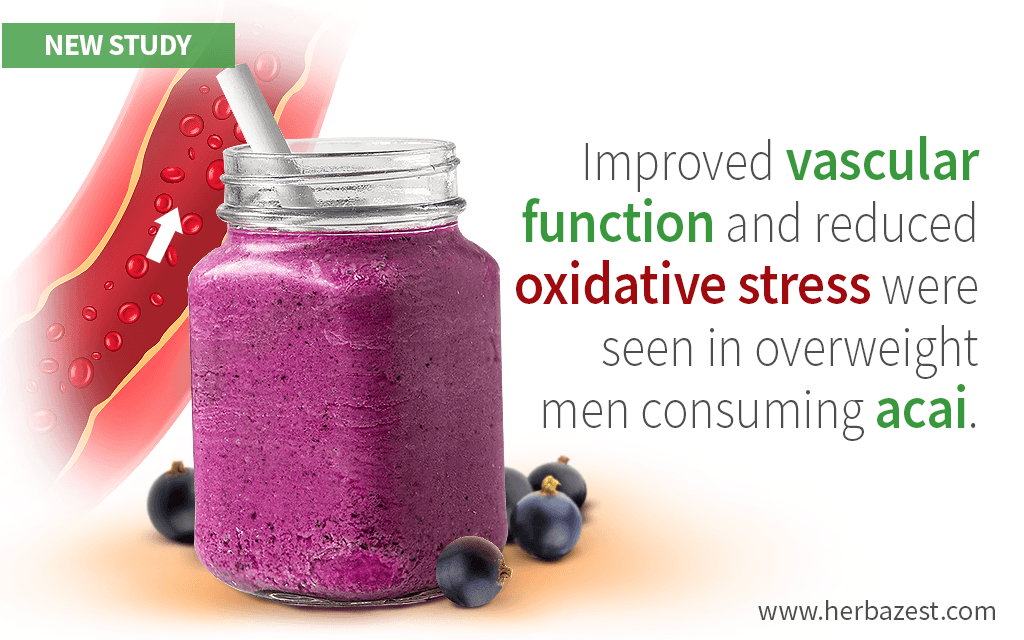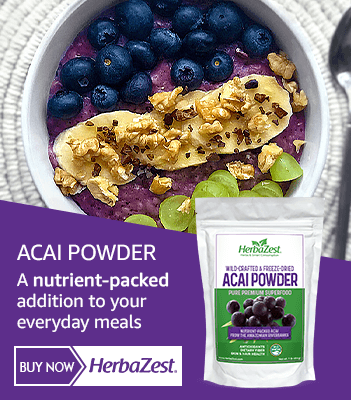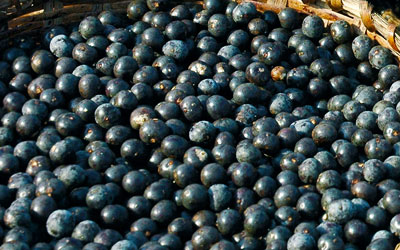Using food to prevent or treat various diseases has long been the interest of researchers and consumers alike. When it comes to reducing the risk of heart disease, foods rich in fiber and healthy fats lead the way.
However, research also points to polyphenols for their effects on improving endothelial function, decreasing “bad” cholesterol, and lowering blood pressure.1 Thanks to its richness in polyphenols, acai was the subject of this clinical trial, which evaluated the effects of acai on cardiovascular disease risk markers.
The Study
This UK trial was done on 23 adult men, aged 30 to 65, with a body mass index (BMI) of 25-30 kg/m2. A BMI of this range is classified as being overweight and is associated with a slightly higher risk of metabolic disease.
Participants consumed either a smoothie made of 250 grams of frozen acai pulp (694 mg total phenolics) and 50 grams of banana or a nutritionally similar control smoothie (less than 10 mg total phenolics). Both smoothies were eaten together with a high-fat breakfast meal.
Researchers took a variety of assessments, including blood samples, blood pressure, and vascular measurements before and several times after breakfast.
The Results
Participants consuming acai smoothie had substantial improvements in vascular function, with significant increases in flow-mediated dilatation. For reference, low FMD has been associated with cardiovascular diseases, including stroke and myocardial infraction.
Also, there were significant reductions in total peroxide concentrations in plasma after acai consumption, which was a measurement of changes in oxidant capacity. Oxidative stress has been shown to play an important role in the development of heart disease.
What Does this Mean?
Published in The American Journal of Clinical Nutrition, the results of this trial show that acai offers cardioprotective benefits by improving vascular function and other metabolic disease markers.
Researchers suggest that acai's cardioprotective properties are due to its high levels of polyphenols. It's worth mentioning that acai is also a rich source of healthy fats (e.g., omega-3 fatty acids), which are widely recognized for their beneficial effects on the heart.
Other herbs that help improve heart health are walnuts, almonds, spinach, avocados, soybeans, and oats.
Sources
- The American Journal of Clinical Nutrition, Consumption of a flavonoid-rich açai meal is associated with acute improvements in vascular function and a reduction in total oxidative status in healthy overweight men, 2016
Footnotes:
- Nutrients. (2013). Polyphenols: Benefits to the Cardiovascular System in Health and in Aging. Retrieved November 5, 2022 from https://www.ncbi.nlm.nih.gov/pmc/articles/PMC3820045/







